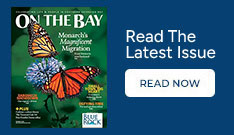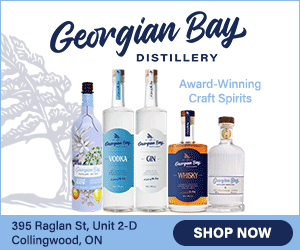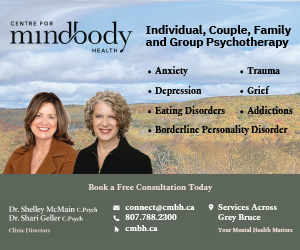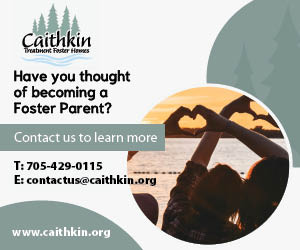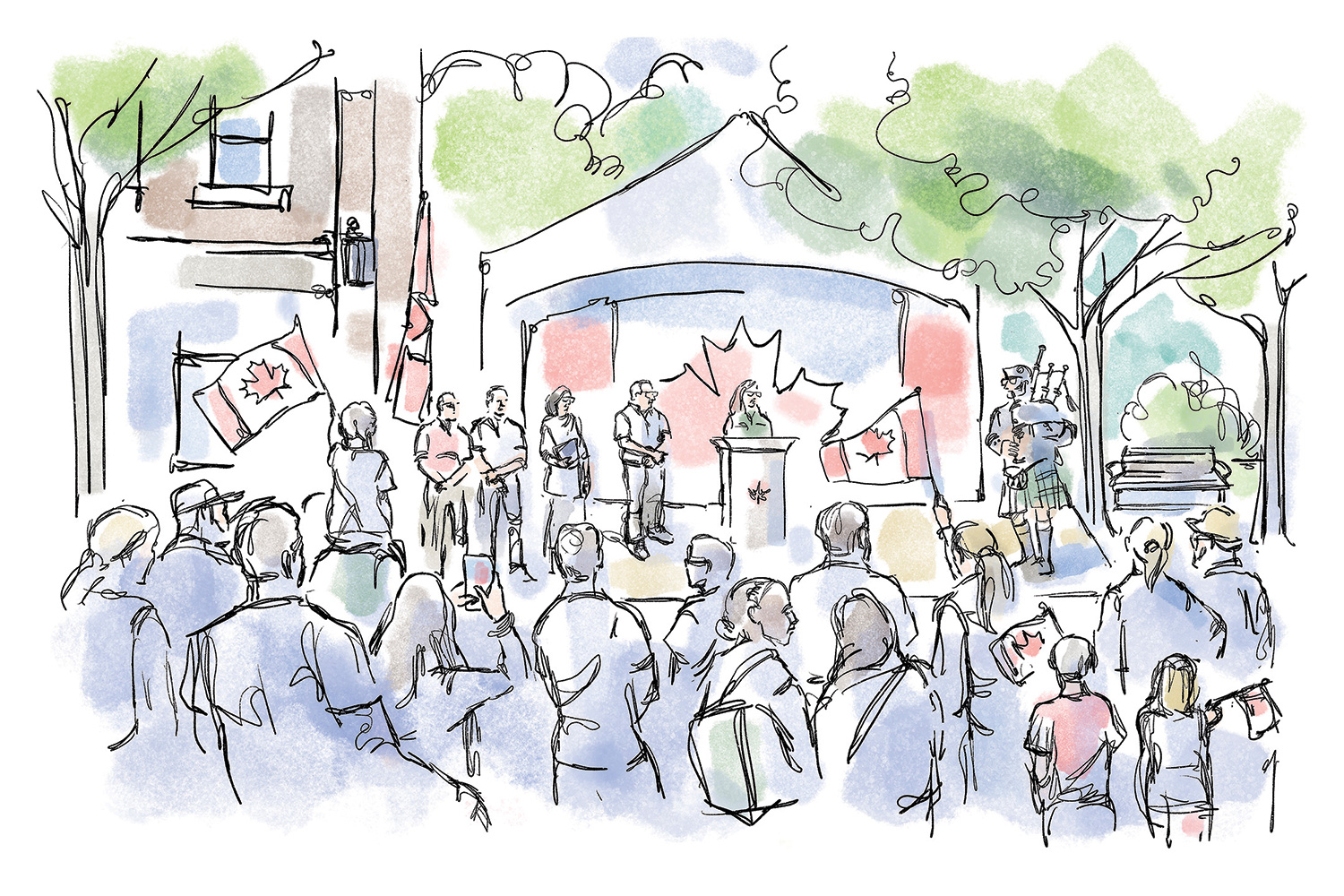
Canadians routinely flub the words of our national anthem, but our mumbles speak volumes.
by Dan Needles ❧ illustration by Shelagh Armstrong-Hodgson
This past summer, an old friend of mine asked me to serve as an honorary citizenship judge for the annual Canada Day “reaffirmation” ceremony he supervises in my hometown. It took place on the main street where a large crowd gathered to hear a bagpiper play “The Maple Leaf Forever.” Then our poet laureate read a piece she had composed for the day and we heard greetings from three levels of government. Then it was my turn to step up and say something intelligent before leading the crowd in reciting an oath of allegiance to Canada, including King Charles III, his heirs and successors.
As we walked over to the platform, I asked our poet laureate, who is Indigenous, if she would be comfortable swearing loyalty to King Charles and she indicated she most definitely would not be doing any such thing.
“I completely understand,” I said. “My family crossed the Atlantic 250 years ago, below the waterline, to get away from plummy guys on horseback who trampled over our fields anytime they pleased. My knee does not bend either.”
What I love about this country is there is no legal requirement for us to swear allegiance to anybody or anything unless we are applying for a job in government or the military. (I think lawyers still have to swear an oath in most provinces.) The rest of us are free to remain silent or even mutter something rebellious on state occasions if we choose, because that is our inalienable right.
When it came time for me to speak to the crowd, I observed that Canadians are the only people who stumble over the words of their national anthem. That day we weren’t sure if we should be singing “Our home on Native land.” I said, “Sing whatever you like, folks.”
For years my own kids sang “True pastry gloves,” because they had a vague sense they were supposed to be expressing reverence for something and the first thing that came to mind was their mother’s home dessert business. They still sing “True pastry gloves” if they don’t have a pamphlet in front of them.
When the flag is fluttering and the anthem is playing—even if it’s that other anthem nobody remembers, about a tree that only grows reliably in temperate forests with topsoil—it is still important to remember what is sacred to us. Canada’s flag has never been a symbol of individual freedom, in spite of the current fad of affixing it to monster trucks. To me, the Maple Leaf stands for a fresh start. Shake the dust of the old place from your feet. Shoulder your way into a human community and try to do good work. And above all, try not to start any of the crap that made it necessary for you to come here. That’s a wonderful narrative for a national symbol and it beats the pants off sulky lions and angry eagles.
There’s no real way of getting around King Charles. He’s in the constitution and to change that you need the unanimous agreement of the provinces, the territories and Lord knows who else. You can rail about it as loud as you like, but it’s extremely difficult, if not impossible to change, which is a good thing. Fads and enthusiasms come and go, statues go up and down, but the thinking of the founders remains in place. We’re stuck with Charles and he with us. On a trip to Canada, his father once famously said, “We don’t come here for our health!”
Years ago, I got to know the minister for our little Anglican church who came to us after a long career as an emergency room nurse. She was far more interested in setting up a daycare or a coffee club for seniors than diving into theological rabbit holes. “I hadn’t thought about it either way,” she would say. “But if you’re coming Sunday, would you bring a hot dish?” Her advice to godparents struggling with the more difficult passages in the baptismal responses was, “If you’re not sure, just mumble.” This is wonderfully Canadian advice and deserves a much wider application.
There’s a lot happening when a Canadian mumbles. The seed of skepticism has been planted, which is the traditional cover crop the brain needs when it is changing its mind about a long-held belief. In that mumble there is doubt, there is humility and there is curiosity, the three essential traits a person needs to find the path to true enlightenment and good citizenship.
Playwright and humorist Dan Needles lives in Nottawa. His latest book, Finding Larkspur: A Return to Village Life, will be released by Douglas & McIntyre this fall.
Author and playwright Dan Needles lives on a small farm in Nottawa.
